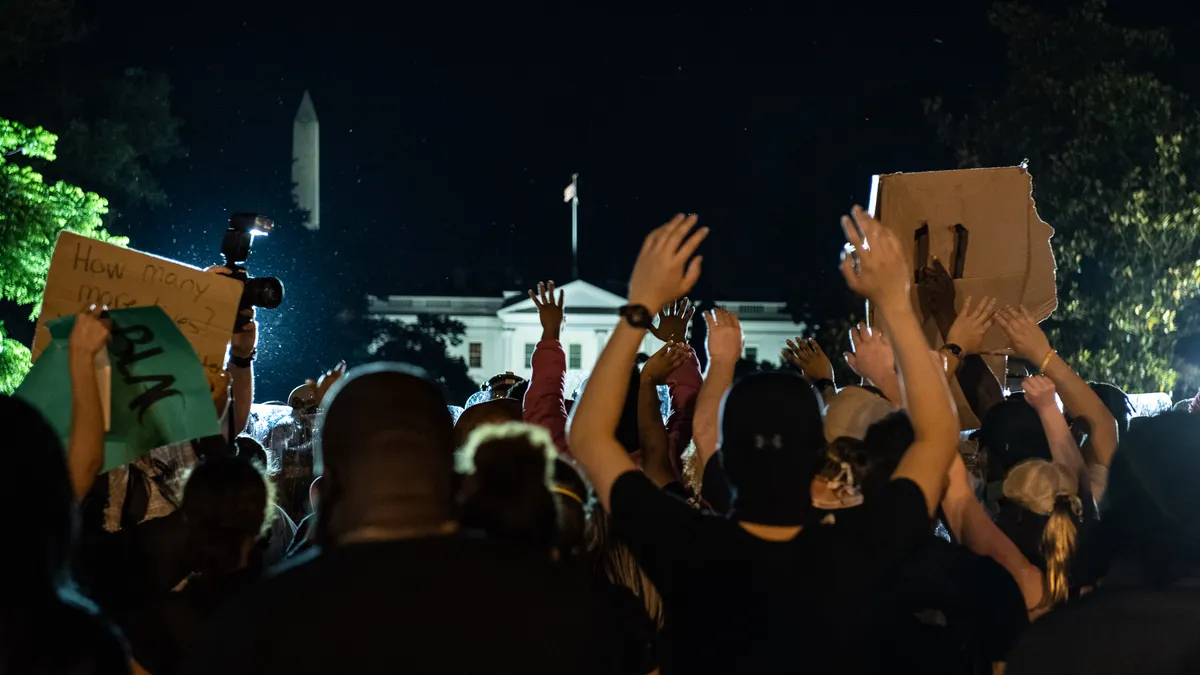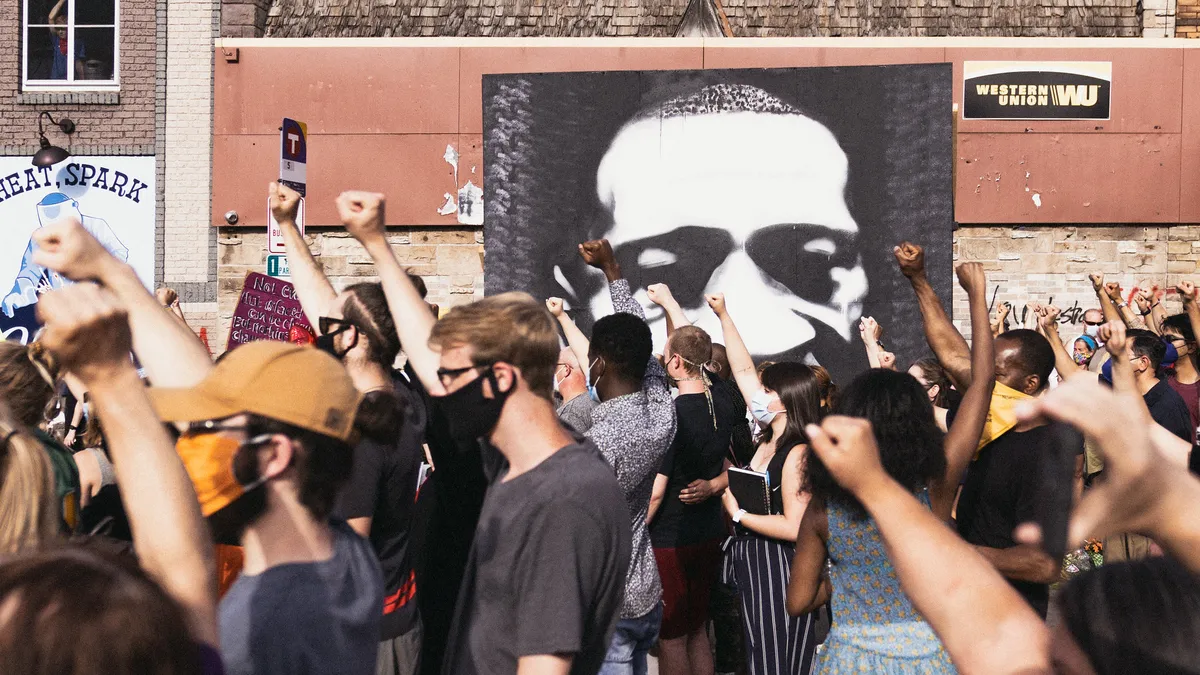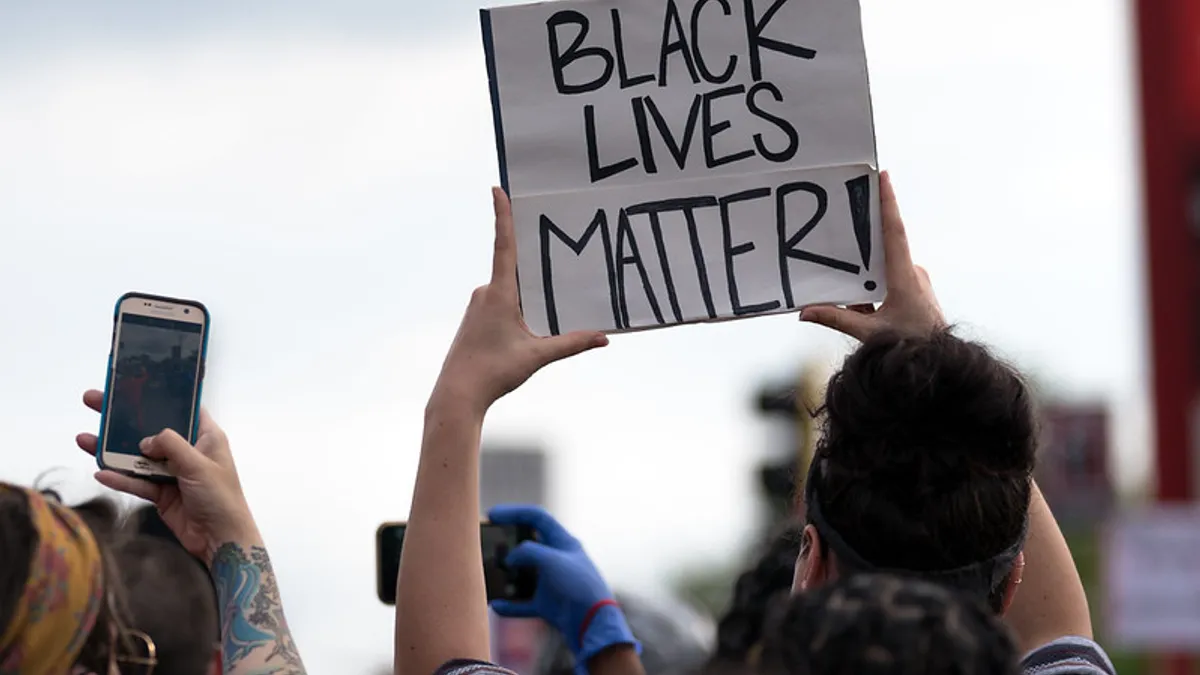When nationwide protests for racial justice erupted in May following the killing of George Floyd, employers had to respond quickly.
Experts like J. Christopher Hamilton, an attorney and assistant professor at the S.I. Newhouse School of Public Communications at Syracuse University, urged company leaders to "stand on the side of justice" by demonstrating solidarity with employees, expressing empathy and helping them through the grieving process, whether through employee assistance programs or other avenues. "If you don't acknowledge the emotional and psychological impact on your staff, during a national crisis," Hamilton told HR Dive at the time, "then you will not be prepared to address the implications that has for your bottom line."
Many employers took those steps and others. Google adopted anti-racism training. The Washington Post created more positions focused on diversity and inclusion. Some high-profile leaders were ousted, while others stepped down in protest.
But now, with those early days over and early statements, donations and actions behind them, employers must find a way to continue to "walk the walk," sources say. This means revisiting succession planning through a D&I lens, some said. For others, it's hiring a company's first-ever D&I executive. But regardless of which long-term steps an employer takes, it's crucial, above all else, to ensure authenticity, Avalara CHRO Kathleen Weslock said. HR's job, along with the PR department, "is to make sure we never get out ahead of an issue without being true to ourselves," Weslock said. "We're the moral compass."
















